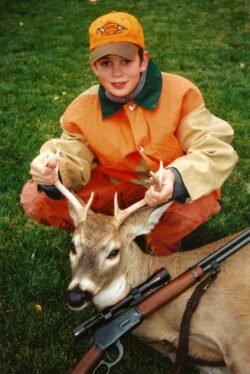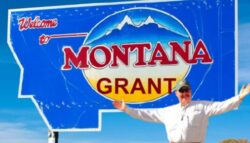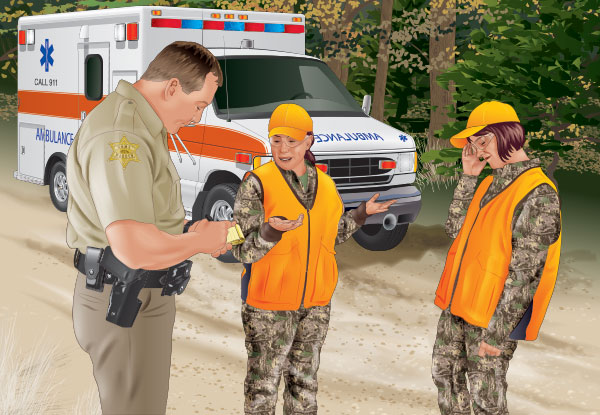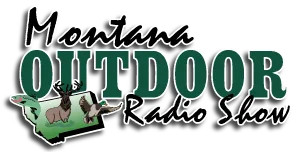 Hunting is a Blood Sport. It is important that the spilled blood is not yours. Whenever you are dealing with ammunition, sharp knives, rough terrain, heavy things, horses, wheelers, and outdoor adventures, things can go bad in a hurry.
Hunting is a Blood Sport. It is important that the spilled blood is not yours. Whenever you are dealing with ammunition, sharp knives, rough terrain, heavy things, horses, wheelers, and outdoor adventures, things can go bad in a hurry.
The best hunting is often in remote areas. This means emergency aid is not behind every tree or rock. Be prepared in case something goes wrong.
Most hunting accidents do not involve guns. Being shot is not very common. It can happen but with Hunter safety Training, this risk has declined. Wearing Hunter Orange also helps. Most injuries come from falling, cutting, or exposure.
Hyperthermia is a deadly risk often overlooked. These cases are most common in warmer, not colder temperatures. A smart hunter dresses in layers to address the conditions. If they become lost, wet, or the weather changes, they will be prepared.
On one of my son’s first deer hunts, we tagged his first buck. At 15 years old, he had much to learn. To get to where we hunted, we had to travel across a river channel in hip boots. When things are already freezing, changing into boots, getting wet, and changing back into hiking boots takes time. Your fingers become cold and things slow down. Kyle was freezing and the sun was setting! Once we got onto the far bank, I had to help put his boots on. To warm his hands, we put them inside the deer carcass. I put my heavy coat over top of his gear and warmed him up. The truck was a mile away. We had a sled to pull out the deer and I asked Kyle if he could walk. Moving would make him warmer. With hand warmers, an extra coat, and the truck keys, Kyle began heading to the truck. I was behind him dragging the deer, gear, and guns. As he walked, he warmed up and made it to the truck. Once there he started it up and blasted the heat. Without my coat, the drag was rough, but I was ok from the exercise. Once at the truck, I was able to warm up too. Having a plan, saved the day.
Electronics can help but cell phones do not work in many remote or rough areas. There are GPS signals and satellite phones, but most hunters do not carry them.
Lone hunters are at greater risk than hunters in a group. If no one knows where you are, how can they find you? Leaving a note on your truck is smart but plans change when you are on the hunt. If the critters change directions, so does the hunter.
Broken bones or sprains result from falling. Cuts happen during gutting. Dehydration happens from sweating and overworking. Heart attacks happen when dragging critter or overexerting yourself. Any of these accidents can happen at any time. What is your plan if they do?
Bleeding can lead to death. If you slice an artery, the chance of losing your life blood is high if you can’t stop blood loss. If you do manage to apply a tourniquet or stop the blood loss, you can’t move. Going into shock can also kill you. Blood can attract predators. You may have no cell signal or friends nearby. You are stuck in the dark timber and the sun is going down. The temperature will go below zero degrees. One thing leads to another and the risk/danger compounds.
Rocky Jacobsen is the best elk hunter that I know. His Rocky Mountain Game Calls are the best. Great calls designed by a great and experienced hunter. On one hunt, he arrowed a great Bull Elk and began the quartering and gutting process. His large, sharp sheath knife slipped and made a cut from his chest and down his arm.
The damage was done, and he was 15 miles from the trailhead. Fortunately, he was not alone. His hunting friends quickly applied first aid. They used what they had. T-shirts became bandages and duct tape was wrapped around his arm to stop the bleeding. They loaded onto their horses and began the long, slow, and painful ride back to the trailhead.
Rocky’s scar reminds all hunters about what can happen when things go wrong. Think about your own hunting and outdoor adventures. What happened that was too risky or dangerous? Were you prepared? Did you have gear to save the day? Did you know what to do to save the day?
Like the Boy Scouts teach, BE PREPARED! Accidents can happen anywhere and at any time. I remember a lone goose hunter that nearly died. He was hunting from sunken goose blinds on the eastern shore of Maryland. Hunting alone was normal for him since many of his buddies had to work. They had leased several farms with goose blinds and the hunter failed to tell anyone which blind he planned to hunt. Over 20 blinds were on the list.
The Goose hunter failed to come home. It snowed during the hunt. This made the hunting great but there were no tracks. When the wife called his buddies, no one knew where he was. The search began.
During his hunt, the goose hunter slipped and fell into the blind, after retrieving some downed birds. He broke and arm and leg. He wasn’t going anywhere. This was before cell phones so… The weather was bad but at least the hunter was below ground. He wrapped up in what gear he had and waited for help. For over 20 hours, he lay in the pit.
Finally, they found his truck and at least knew what farm he was on. Snow covered any tracks. The goose pits are always well away from houses and roads and the deep snow slowed the search. When they found the hunter, he was in shock and near death. He was nearly frozen to the broken bones. The local emergency team arrived and did their best to get him to safety.
The hunter survived but I bet he never hunts alone anymore. If you prepare for the worst, it often never happens. No critter is worth dying over.
Montana Grant





